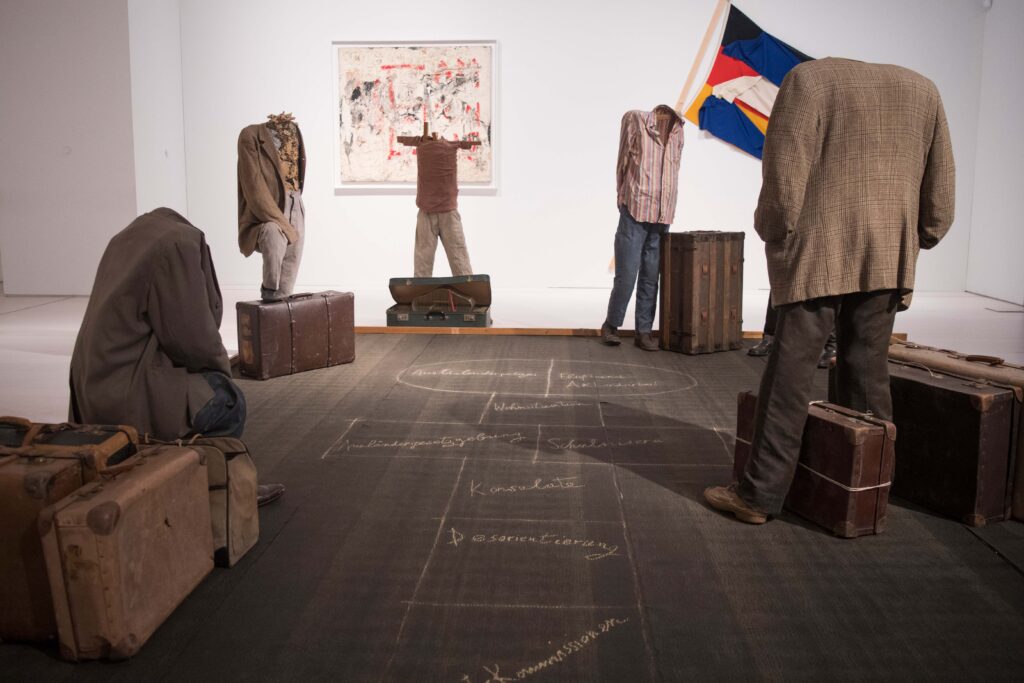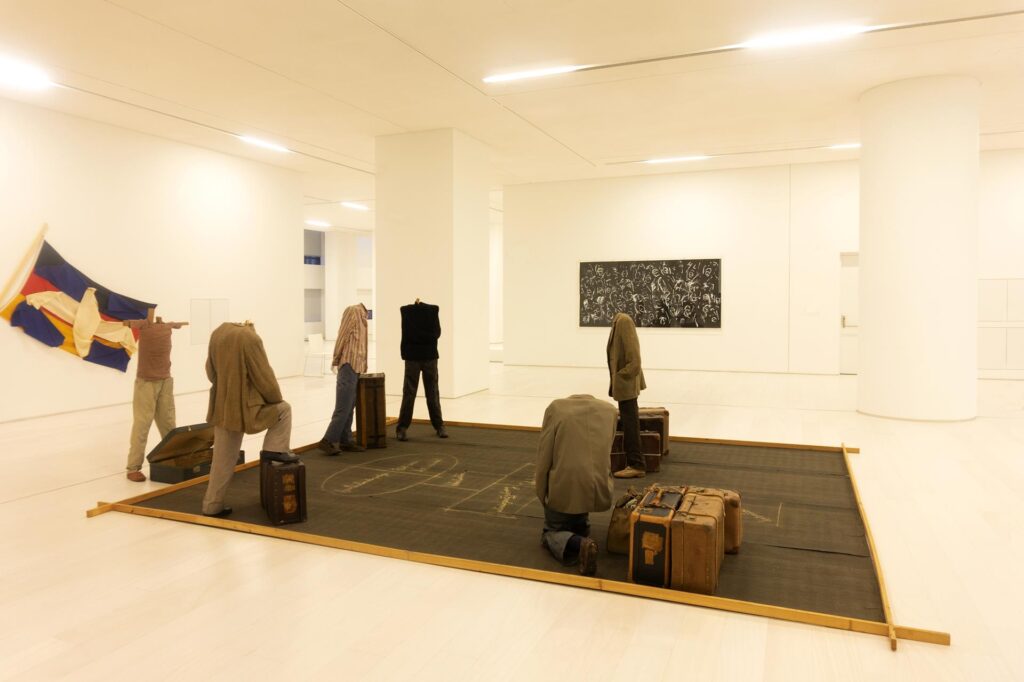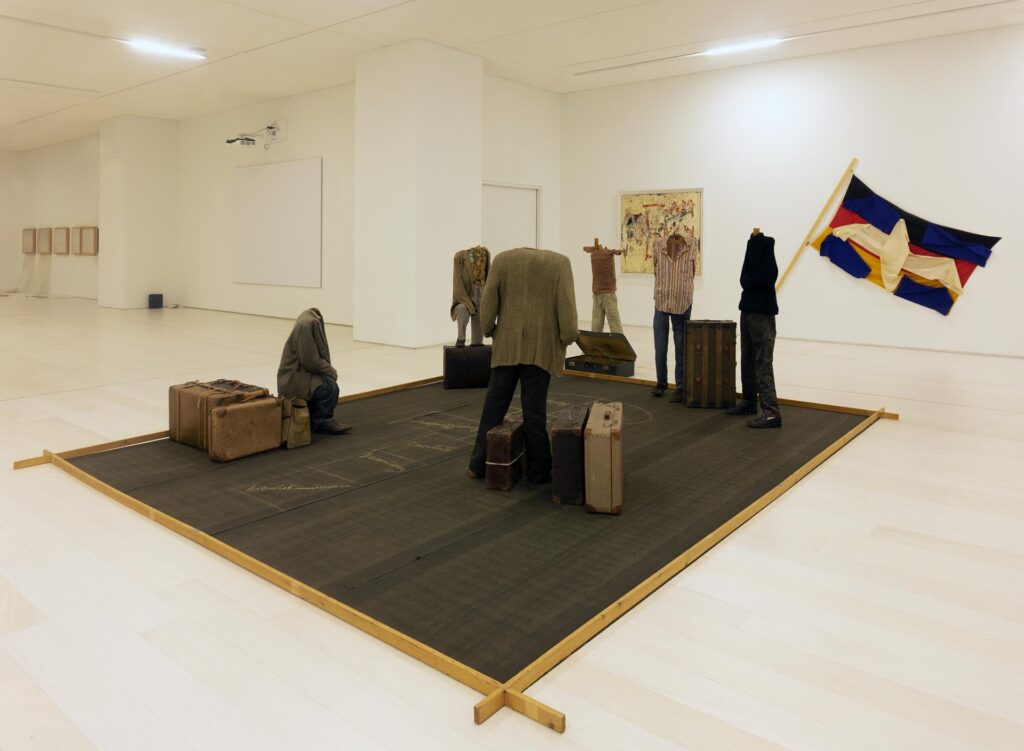Hopscotch by Vlassis Caniaris
Image details
Caniaris Vlassis Hopscotch 1974
National Museum of Contemporary Art Αthens (ΕΜΣΤ)
Hopscotch (1974) was created by Vlassis Caniaris, a prominent Greek artist as a part of his Immigrant series. Hopscotch consists of headless dummies outfitted in clothing. They carry large suitcases with them. The figures stand around a chalk hopscotch court where, instead of numbers, words are written which refer to stages of labor immigration policy. Hopscotch was created as a commentary on the struggles that Greek men faced post WWII, a time when many had to immigrate to Germany to find work due to the financial struggles that Greece faced during this time. This meant leaving their home country and families behind.
The clothes are positioned in incredibly lifelike stances. One is positioned with its leg propped up, its hand resting in its pocket. Another kneels down on the ground next to his suitcase. The form with the striped shirt has its shoulders tensed. The body language of these forms is really palpable, and the exhaustion they are experiencing is very clear. The contrast between the headless figures, stripping the figures of identity, and the childish hopscotch court they are standing on, is a stark reminder of both the governmental policies that immigrants are forced to leap through, as well as the social adjustment of having to relocate to an unfamiliar place.
“Caniaris focuses on diverse stories, voices, gestures, and ordinary objects relating to the working and living conditions of “guest workers”—the migrant workers who traveled to Western Europe following transnational agreements since the late 1950s—reflecting the unstable reality of territorial displacement, social exclusion, national identity, and contested citizenship” (Documenta 14).
It feels significant to begin with this piece to really ground the struggles of what Greek citizens have been dealing with in the last few decades. Although immigration to Greece and asylum seekers in Europe is incredibly prevalent today, emmigration is an important part of the Greek past. Though the “othering” of asylum seekers often takes place, there is a shared experience across cultures and nations of feeling a pressure to relocate in order to seek better opportunities.


